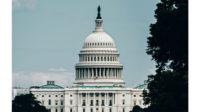HVACR trade groups are welcoming a recent U.S. Supreme Court decision that limits the power of federal agencies to set regulations without explicit direction from Congress.
Industry advocates say the 6-3 ruling in West Virginia v. Environmental Protection Agency is an important check on agencies that overstep their authority, and should strengthen the industry’s challenge of an EPA rule that would ban the use of non-refillable refrigerant cylinders.
In a 6-3 ruling issued June 30, the court held that the EPA had exceeded its authority in requiring states to submit plans to reduce greenhouse gas emissions from plants that generate electricity. The reductions were to be achieved through the cleaner burning of coal and the increased use of lower-emissions fuels like natural gas and renewables like solar and wind power.
“It is not plausible that Congress gave EPA the authority to adopt on its own such a regulatory scheme” in the Clean Air Act, wrote Chief Justice John Roberts in the majority opinion. “A decision of such magnitude and consequence rests with Congress itself, or an agency acting pursuant to a clear delegation from that representative body.”
“This is really going to help a lot of industries that have been hurt by overregulation,” said Alex Ayers, government affairs director at the Heating Air-Conditioning & Refrigeration Distributors International.
“The courts are not going to be deferential (to agencies) as they have in the past ... unless there is a clear authority” from Congress, Ayers added.
“It just really gets back to the authority to redesign an entire industry. EPA doesn't have that," said Barton James, president and CEO of the Air Conditioning Contractors of America (ACCA).
In its majority opinion, the high court cited the “major questions doctrine,” which holds that regulatory agencies need clear direction from Congress before taking major policy steps.
“The major questions doctrine will affect all regulatory agencies,” Ayers said.
Both James and Ayers said the ruling lends weight to their contention that the EPA is acting outside its authority in a plan to ban the use of non-refillable refrigerant cylinders by 2025 and require refillable cylinders to be tracked with QR codes, a rule issued last fall as part of guidelines for phasing down the use of hydrofluorocarbon (HFC) refrigerants. HARDI and ACCA support the HFC phasedown effort, but are among the petitioners in a lawsuit, now in the U.S. Court of Appeals for the District of Columbia, against the non-refillable cylinder ban.
Ayers said the West Virginia v. EPA ruling could also be a factor in whether a Department of Energy (DOE) proposal that would require new, non-weatherized gas furnaces to have an annual fuel utilization efficiencies of at least 95%, beginning in 2029, is ultimately adopted. While the DOE has the authority to set efficiency standards, Ayers said, phasing out non-condensing furnaces would force some consumers to replace gas furnaces with electric heating equipment, and mandating changes in fuel sources is outside the scope of the department’s authority.
At issue in West Virginia v. EPA were the greenhouse gas emissions curbs that had been sought as part of the Obama administration’s Clean Power Plan, which never took effect after being stayed by the high court in 2016 and then replaced with a different plan during the Trump administration.
EPA Administrator Michael S. Regan called the Supreme Court’s ruling “disheartening,” but said the agency “will never waver” from its mission of protecting people’s health.
“While I am deeply disappointed by the Supreme Court’s decision, we are committed to using the full scope of EPA’s authorities to protect communities and reduce the pollution that is driving climate change,” Regan said in a prepared statement. “We will move forward to provide certainty and transparency for the energy sector, which will support the industry’s ongoing efforts to grow our clean energy economy.”
Voting in the court’s majority with Roberts were associate justices Clarence Thomas, Samuel Alito, Brett Kavanaugh, Neil Gorsuch, and Amy Coney Barrett. Associate justices Elena Kagan, Sonia Sotomayor, and Stephen Breyer, who retired the day the opinion was released, were the dissenters.





